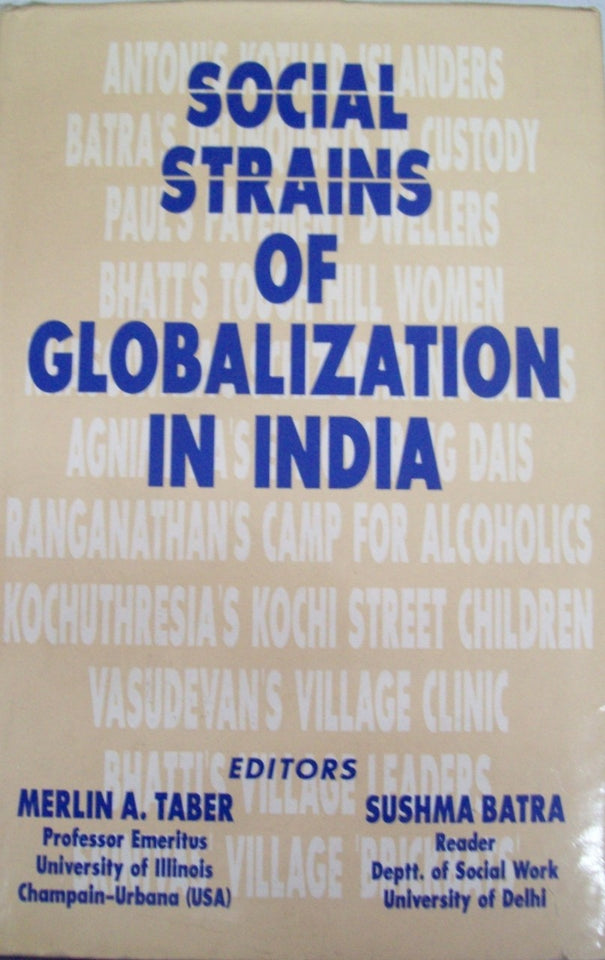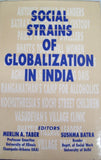Social Strains Of Globalization In India
Regular price
Rs. 475.00
Thirtyeight case studies show the human side of ?globalization. Written by social workers from all parts of India, these studies reveal the impact of social change on families and communities. Women, men, children and communities from every section are represented. Dynamics of family and community problems are depicted through the daily lives of individuals suffering from poverty, social isolation, pressures of modern urban life, or personal problems of addiction of handicap. A hopeful and encouraging thread runs through these case examples because, in many cases, the people facing difficulties have joined their efforts with each other or with social workers to solve them and improve their lives. Written by professionals or volunteer helpers, these studies focus on human problems rather than helping programmes. Each case example begins with the depiction of the problem situation and how it affects the everyday family or community life. the struggle for a better life and its outcome are also presented. Each case example offers a glimpse of the real-life suffering in some section of Indian society and efforts at improvement. Every reader will find something of interest. The old problems of poverty and discrimination have a new face under the impact of economic development and this book is only a sample of such problems in India today. In addition the globalization of Indian society has brought new problems such as doubled demands on working women, forced relocation of poor families, increased alcoholism, abandonment of older parents, increased dowry demands, and higher school pressures for achievement. The book may be read as a meaningful survey of the social problems today, for its human interest, or seen as a picture of the current social work practice in the form of actual cases. Professor Taber was Fulbright Lecturer in India during 1994-95. His duties brought him in contact with many social workers and NGO executive in every corner of India and he used the opportunity to seek their assistance in compiling this volume. Sushma Batra teaches social workers at the University of Delhi. Her years of teaching and wide acquaintance with social workers throughout India enabled her to seek out the most interesting programmes and local classes of special value for showing the impact of social and economic change on Indian families.
Merlin A. Taber has practised, taught and done research on social programmes for 45 years. Besides duties and two state universities he has collaborated with government agencies to design, implement and evaluate large social programmes. But most of his work has been on programmes for community care of the severally mentally ill, frail elderly, and adolescents from the city streets. His research and writings, several books and over 30 articles, primarily concern these three target groups and programmes for them. He took early retirement in 1990 and has since travelled and lectured in 9 countries of Asia and East Europe. This book was developed with the help of Sushma Batra during his Fulbright Lecturership in India, 1994-95. Sushma Batra (b. 1953) graduated from the University of Delhi in 1973 and obtained her Master’s and M.Phil. Degree in Social Work from the same university in 1975 and 1978. She joined the Department of Social Work of her alma mater in 1978 as Lecturer in the NSS Unit. At present she is Reader in the Department of Social Work, University of Delhi. She has published a book, Social Integration of the Blind (Concept, 1981) and has to her credit several articles on the subject published in leading Indian and foreign journals. She has also directed a documentary on ‘Behaviour Problems and Child Guidance Centre’. At present she is actively involved in a variety of assignments related to her discipline. She is Life Member of the Delhi School of Social Work Society and at present Treasurer of the Society.
Guaranteed Safe Checkout





